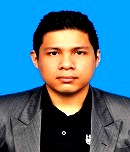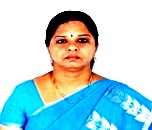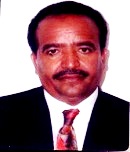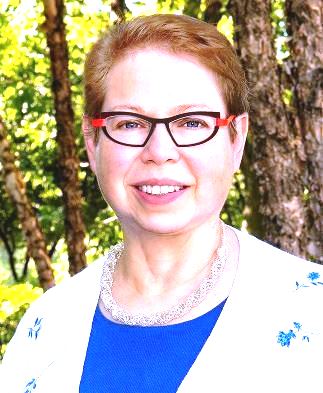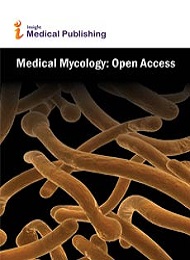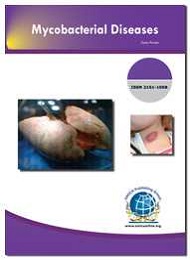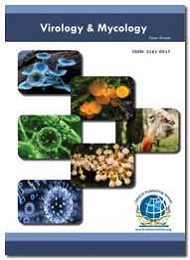Theme: Impact of Mycology and Mushrooms in addressing ultimate global health challenges
Mycology 2017
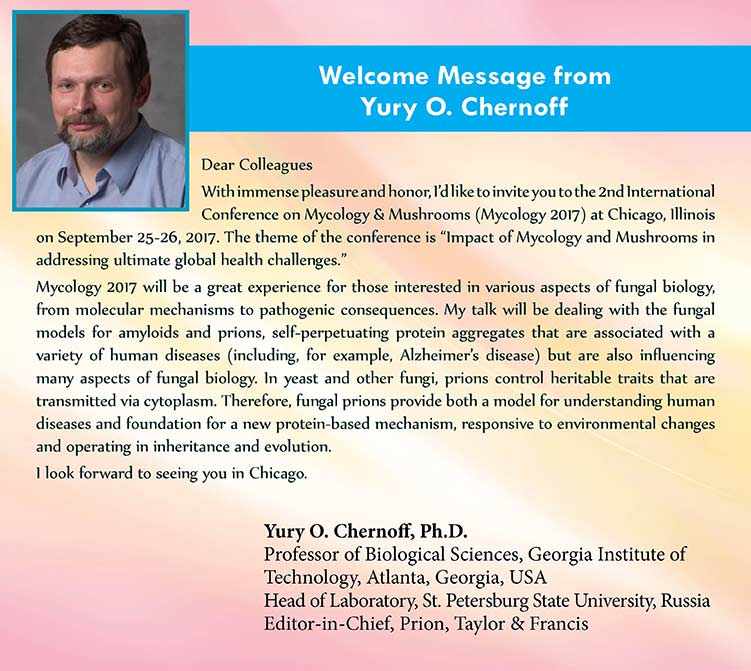
ConferenceSeries Ltd invites all the participants from all over the world to attend ‘2nd International Conference on Mycology & Mushrooms’ during September 25-26, 2017 in Chicago, USA, which includes prompt Keynote presentations, Oral talks, Poster presentations and Exhibitions.
In the line with 2nd International Conference on Mycology and Mushrooms, addressing the most recent advances across the spectrum of Mycology and Mushrooms research from basic sciences to public health. Conference highlights will include Fungal Diversity, Fungal Ecology, Fungal Biotechnology, Fungal Symbiosis (Lichens and Mycorrhizae), Pathogenic fungi and Fungal Infections, Bacterial-Fungal Interactions, Mycotoxins, Medical mycology, Industrial Mycology, Food Mycology, Mushrooms, Edible and Medicinal Mushrooms and Entrepreneur Investments Meet.
ConferenceSeries Ltd Organizes 300+ Conferences Every Year across USA, Europe & Asia with support from 1000 more scientific societies and Publishes 500+ Open access journals which contains over 50,000 eminent personalities, reputed scientists as editorial board members.
Highlighting 2 days of scientific workshops, special sessions, speaker & poster sessions, and Industrial Expo.250+ attendees from all over the world.
Track-1 Medical Mycology
Medical mycology is the study of fungal infections. In immune-compromised hosts systemic fungal infections are usually seen. Systemic fungal infections lead to pulmonary infections. Fungal infections are usually seen on skin, nails, and hair. Common fungal infections are intertrigo, thrush, and pityriasis versicolor, athlete’s foot, nail infections, ring worm of the body, ring worm of the groin.
Related conferences
7th World Congress on Clinical Microbiology February 27-28, 2017 Amsterdam, Netherlands, World Congress on Mycotoxins February 27-28, 2017 Amsterdam, Netherlands, 9th International Virology Congress and Expo March 13-15, 2017 London, UK, Global Summit on Tuberculosis and Mycobacteria April 24-26, 2017 Las Vegas, USA, 10th World Congress on Virology and Mycology May 11-12, 2017 Singapore, International Conference On Microbial Engineering May 29-31, 2017 Beijing, China, International Conference on Medical and Clinical Microbiology July 03-05, 2017 Thailand, Bangkok, 8th World Congress on Virology November 28-30, 2016 San Antonio, USA, Global Pharmaceutical Microbiology Conference June 19-20, 2017 London, UK, International Conference on Fungal Diseases & Control September 25-26, 2017 Dubai, UAE, Annual Conference on Antimicrobials and Drug Resistance August 24-25, 2017 Toronto, Canada, 7th Annual Congress on Clinical Microbiology August 28-30, 2017 Philadelphia, USA, 2nd International Conference and Expo on Water Microbiology & Novel Technologies August 28-30, 2017 Philadelphia, USA, 2nd International conference on Human Papillomavirus Aug 31-Sep 1, 2017 Philadelphia, USA, Global Veterinary Microbiology Summit & Expo Oct 2-4, 2017 Las Vegas, USA,
North American Mycological Association, International Mycological Association, Minnesota Mycological Society, Yakima Valley Mushroom Society, Wisconsin Mycological Society, New York Mycological Society, Vancouver Mycological Society, Edmonton Mycological Society, Mycological Society of Toronto, Mycological Association of Washington, Mycological Society of San Francisco, Sonoma County Mycological Association, The Southern Idaho Mycological Association, North American Mycological Societies,
Track-2 Mushrooms
The mushroom is a spore-bearing, fleshy fruiting body of a fungus, which grows above ground on soil or on organic food source. The most important microscopic feature for identification of mushrooms is the spores. Their colour, shape, size, attachment, and its reaction to chemical tests often can be the crux of identification. Many species of mushrooms seemingly appear overnight, growing or expanding rapidly. In reality all species of mushrooms take several days to form primordial mushroom fruit bodies, though they do expand rapidly by the absorption of fluids. Within the main body of mushrooms, in the agaricales, are common fungi like fairy-ring mushroom, shiitake, enoki, oyster mushrooms, fly agarics and other amanitas, magic mushrooms. An atypical mushroom is the lobster mushroom, which is a deformed, by the mycoparasitic ascomycete hypomyces lactifluorum. Some are having pores underneath, others have spines. Thus, the term is more one of the common application used for macroscopic fungal fruiting bodies than one having precise taxonomic meaning.
Related conferences
7th World Congress on Clinical Microbiology February 27-28, 2017 Amsterdam, Netherlands, World Congress on Mycotoxins February 27-28, 2017 Amsterdam, Netherlands, 9th International Virology Congress and Expo March 13-15, 2017 London, UK, Global Summit on Tuberculosis and Mycobacteria April 24-26, 2017 Las Vegas, USA, 10th World Congress on Virology and Mycology May 11-12, 2017 Singapore, International Conference On Microbial Engineering May 29-31, 2017 Beijing, China, International Conference on Medical and Clinical Microbiology July 03-05, 2017 Thailand, Bangkok, 8th World Congress on Virology November 28-30, 2016 San Antonio, USA, Global Pharmaceutical Microbiology Conference June 19-20, 2017 London, UK, International Conference on Fungal Diseases & Control September 25-26, 2017 Dubai, UAE, Annual Conference on Antimicrobials and Drug Resistance August 24-25, 2017 Toronto, Canada, 7th Annual Congress on Clinical Microbiology August 28-30, 2017 Philadelphia, USA, 2nd International Conference and Expo on Water Microbiology & Novel Technologies August 28-30, 2017 Philadelphia, USA, 2nd International conference on Human Papillomavirus Aug 31-Sep 1, 2017 Philadelphia, USA, Global Veterinary Microbiology Summit & Expo Oct 2-4, 2017 Las Vegas, USA,
North American Mycological Association, International Mycological Association, Minnesota Mycological Society, Yakima Valley Mushroom Society, Wisconsin Mycological Society, New York Mycological Society, Vancouver Mycological Society, Edmonton Mycological Society, Mycological Society of Toronto, Mycological Association of Washington, Mycological Society of San Francisco, Sonoma County Mycological Association, The Southern Idaho Mycological Association, North American Mycological Societies,
Track-3 Fungal Biofilms
Fungal biofilms are a growing clinical problem related with significant rates of mortality. Candida albicans is the most notorious of all fungal biofilm formers. However, non-Candida species, yeasts such as Cryptococcus neoformans, and filamentous moulds such as Aspergillus fumigatus, have been shown to be implicated in biofilm-associated infections. Fungal biofilms have distinct developmental phases, including adhesion, colonisation, maturation and dispersal, which are governed by complex molecular events. Recalcitrance to antifungal therapy remains the greatest threat to patients with fungal biofilms. This analysis is to discuss our current understanding of the basic biology and clinical implications associated with fungal biofilms.
Track-4 Antifungal Drugs
An antifungal medication is a pharmaceutical fungicide or fungi static used to treat and prevent mycoses, which are most commonly found on the skin, hair and nails. It works by exploiting differences between mammalian and fungal cells to kill the fungal organism with fewer adverse effects to the host. Antifungal medicines are used in several ways, depending on your specific fungal infection.
Track-5 Applied Mycology and Biotechnology
Most industrial processes used fungal cells for the bulk manufacturing of organic acids, proteins, enzymes, secondary metabolites and active pharmaceutical ingredients in white and red biotechnology. A number of challenges now need to be addressed to improve our strategies to control fungal pathogenicity and to optimise the use of fungi as sources for novel compounds. Molecular manipulations have been added to mutational techniques as a means of increasing yields of microbial processes and in the discovery of new drugs. Nowadays, fungal biology is a major contributor in global industry. Still, the finest is yet to come as genomes of new additional species have located and sequenced at some level (cDNA, complete genomes, and expressed sequence tags) and gene and protein arrays will become available.
Related conferences
7th World Congress on Clinical Microbiology February 27-28, 2017 Amsterdam, Netherlands, World Congress on Mycotoxins February 27-28, 2017 Amsterdam, Netherlands, 9th International Virology Congress and Expo March 13-15, 2017 London, UK, Global Summit on Tuberculosis and Mycobacteria April 24-26, 2017 Las Vegas, USA, 10th World Congress on Virology and Mycology May 11-12, 2017 Singapore, International Conference On Microbial Engineering May 29-31, 2017 Beijing, China, International Conference on Medical and Clinical Microbiology July 03-05, 2017 Thailand, Bangkok, 8th World Congress on Virology November 28-30, 2016 San Antonio, USA, Global Pharmaceutical Microbiology Conference June 19-20, 2017 London, UK, International Conference on Fungal Diseases & Control September 25-26, 2017 Dubai, UAE, Annual Conference on Antimicrobials and Drug Resistance August 24-25, 2017 Toronto, Canada, 7th Annual Congress on Clinical Microbiology August 28-30, 2017 Philadelphia, USA, 2nd International Conference and Expo on Water Microbiology & Novel Technologies August 28-30, 2017 Philadelphia, USA, 2nd International conference on Human Papillomavirus Aug 31-Sep 1, 2017 Philadelphia, USA, Global Veterinary Microbiology Summit & Expo Oct 2-4, 2017 Las Vegas, USA,
North American Mycological Association, International Mycological Association, Minnesota Mycological Society, Yakima Valley Mushroom Society, Wisconsin Mycological Society, New York Mycological Society, Vancouver Mycological Society, Edmonton Mycological Society, Mycological Society of Toronto, Mycological Association of Washington, Mycological Society of San Francisco, Sonoma County Mycological Association, The Southern Idaho Mycological Association, North American Mycological Societies,
Track-6 Fungal Diversity
Fungi are eukaryotic organisms which cannot produce their own energy and depend on enzymatic processes for metabolic activity to absorb nutrition. Its kingdom encompasses tremendous biological diversity, with members covering a wide range of lifestyles, forms, habitats, and sizes. Advances in molecular techniques have formed the base for a boost in studies concerning fungal diversity, and the fast development of next generation sequencing technologies promises further progress towards a more thorough understanding of fungal diversity and function. The current limited knowledge of fungal diversity and biology complicates an assessment of the conservation status of fungal species and has hindered the development of conservation tools and efforts.
Related conferences
7th World Congress on Clinical Microbiology February 27-28, 2017 Amsterdam, Netherlands, World Congress on Mycotoxins February 27-28, 2017 Amsterdam, Netherlands, 9th International Virology Congress and Expo March 13-15, 2017 London, UK, Global Summit on Tuberculosis and Mycobacteria April 24-26, 2017 Las Vegas, USA, 10th World Congress on Virology and Mycology May 11-12, 2017 Singapore, International Conference On Microbial Engineering May 29-31, 2017 Beijing, China, International Conference on Medical and Clinical Microbiology July 03-05, 2017 Thailand, Bangkok, 8th World Congress on Virology November 28-30, 2016 San Antonio, USA, Global Pharmaceutical Microbiology Conference June 19-20, 2017 London, UK, International Conference on Fungal Diseases & Control September 25-26, 2017 Dubai, UAE, Annual Conference on Antimicrobials and Drug Resistance August 24-25, 2017 Toronto, Canada, 7th Annual Congress on Clinical Microbiology August 28-30, 2017 Philadelphia, USA, 2nd International Conference and Expo on Water Microbiology & Novel Technologies August 28-30, 2017 Philadelphia, USA, 2nd International conference on Human Papillomavirus Aug 31-Sep 1, 2017 Philadelphia, USA, Global Veterinary Microbiology Summit & Expo Oct 2-4, 2017 Las Vegas, USA,
North American Mycological Association, International Mycological Association, Minnesota Mycological Society, Yakima Valley Mushroom Society, Wisconsin Mycological Society, New York Mycological Society, Vancouver Mycological Society, Edmonton Mycological Society, Mycological Society of Toronto, Mycological Association of Washington, Mycological Society of San Francisco, Sonoma County Mycological Association, The Southern Idaho Mycological Association, North American Mycological Societies,
Track-7 Pathogenic Fungi and Fungal Diseases
Pathogenic fungi cause disease in humans and in other organisms, which is called as fungal pathogenesis. This is particularly true of fungal pathogenesis that there is no single factor that causes or permits these organisms to be agents of diseases that range from superficial to invasive diseases in plant, animal, and human. A small number of fungi have the ability to cause infections in normal healthy humans by (1) having a unique enzymatic capacity, (2) exhibiting thermal dimorphism and (3) by having an ability to block the cell-mediated immune defences of the host. There are then many "opportunistic" fungi which cause infections almost exclusively in debilitated patients whose normal defence mechanisms are impaired. More recently described mycoses of this category include hyalohyphomycosis and phaeohyphomycosis.
Related conferences
7th World Congress on Clinical Microbiology February 27-28, 2017 Amsterdam, Netherlands, World Congress on Mycotoxins February 27-28, 2017 Amsterdam, Netherlands, 9th International Virology Congress and Expo March 13-15, 2017 London, UK, Global Summit on Tuberculosis and Mycobacteria April 24-26, 2017 Las Vegas, USA, 10th World Congress on Virology and Mycology May 11-12, 2017 Singapore, International Conference On Microbial Engineering May 29-31, 2017 Beijing, China, International Conference on Medical and Clinical Microbiology July 03-05, 2017 Thailand, Bangkok, 8th World Congress on Virology November 28-30, 2016 San Antonio, USA, Global Pharmaceutical Microbiology Conference June 19-20, 2017 London, UK, International Conference on Fungal Diseases & Control September 25-26, 2017 Dubai, UAE, Annual Conference on Antimicrobials and Drug Resistance August 24-25, 2017 Toronto, Canada, 7th Annual Congress on Clinical Microbiology August 28-30, 2017 Philadelphia, USA, 2nd International Conference and Expo on Water Microbiology & Novel Technologies August 28-30, 2017 Philadelphia, USA, 2nd International conference on Human Papillomavirus Aug 31-Sep 1, 2017 Philadelphia, USA, Global Veterinary Microbiology Summit & Expo Oct 2-4, 2017 Las Vegas, USA,
North American Mycological Association, International Mycological Association, Minnesota Mycological Society, Yakima Valley Mushroom Society, Wisconsin Mycological Society, New York Mycological Society, Vancouver Mycological Society, Edmonton Mycological Society, Mycological Society of Toronto, Mycological Association of Washington, Mycological Society of San Francisco, Sonoma County Mycological Association, The Southern Idaho Mycological Association, North American Mycological Societies,
Track-8 Mushrooms for Health Immune System and Cancer
Edible mushrooms are the fleshy fruit bodies of several species of macro-fungi. They can appear either below ground or above ground where they may be picked by hand. Edibility may be defined by criteria that include absence of poisonous effects on humans and desirable taste and aroma. Mushrooms play extremely important roles in the ecosystem, and some are famously delicious. Some are also famously deadly. In recent years has focused on various immunological and anti-cancer properties of certain mushrooms, they also offer other potentially important health benefits, including antioxidants, anti-hypertensive and cholesterol-lowering properties, liver protection, as well as anti-inflammatory, anti-diabetic, anti-viral and anti-microbial properties. These properties have attracted the interest of many pharmaceutical companies, which are viewing the medicinal mushroom as a rich source of innovative biomedical molecules. Mushrooms contain disease-busting polysaccharides, glycoproteins, ergosterols, triterpenoids, and immune-boosting chemicals. They can also be used to bolster a declining immune system during aging.
Related conferences
7th World Congress on Clinical Microbiology February 27-28, 2017 Amsterdam, Netherlands, World Congress on Mycotoxins February 27-28, 2017 Amsterdam, Netherlands, 9th International Virology Congress and Expo March 13-15, 2017 London, UK, Global Summit on Tuberculosis and Mycobacteria April 24-26, 2017 Las Vegas, USA, 10th World Congress on Virology and Mycology May 11-12, 2017 Singapore, International Conference On Microbial Engineering May 29-31, 2017 Beijing, China, International Conference on Medical and Clinical Microbiology July 03-05, 2017 Thailand, Bangkok, 8th World Congress on Virology November 28-30, 2016 San Antonio, USA, Global Pharmaceutical Microbiology Conference June 19-20, 2017 London, UK, International Conference on Fungal Diseases & Control September 25-26, 2017 Dubai, UAE, Annual Conference on Antimicrobials and Drug Resistance August 24-25, 2017 Toronto, Canada, 7th Annual Congress on Clinical Microbiology August 28-30, 2017 Philadelphia, USA, 2nd International Conference and Expo on Water Microbiology & Novel Technologies August 28-30, 2017 Philadelphia, USA, 2nd International conference on Human Papillomavirus Aug 31-Sep 1, 2017 Philadelphia, USA, Global Veterinary Microbiology Summit & Expo Oct 2-4, 2017 Las Vegas, USA,
North American Mycological Association, International Mycological Association, Minnesota Mycological Society, Yakima Valley Mushroom Society, Wisconsin Mycological Society, New York Mycological Society, Vancouver Mycological Society, Edmonton Mycological Society, Mycological Society of Toronto, Mycological Association of Washington, Mycological Society of San Francisco, Sonoma County Mycological Association, The Southern Idaho Mycological Association, North American Mycological Societies,
Track-9 Fungal Interactions
Bacterial and fungal interactions can form a range of physical associations that depend on various modes of molecular communication for their development and functioning. Consequences of bacterial-fungal interactions have profound consequences for both organisms and changes in the bacterial and fungal partners' physiology, life cycles, and survival. Applications of BIFs found in various biological fields i.e. Food processing, fermentation and brewing, cheese ripening, bioremediation of pollutants, natural product discovery and synthetic biology. Mixed bacterial-fungal communities play a key role in determining the taste, quality, and safety of a wide range of foods, like wine production, cheese manufacture involves complex microbial ecosystems where BIFs play a central role.
Related conferences
7th World Congress on Clinical Microbiology February 27-28, 2017 Amsterdam, Netherlands, World Congress on Mycotoxins February 27-28, 2017 Amsterdam, Netherlands, 9th International Virology Congress and Expo March 13-15, 2017 London, UK, Global Summit on Tuberculosis and Mycobacteria April 24-26, 2017 Las Vegas, USA, 10th World Congress on Virology and Mycology May 11-12, 2017 Singapore, International Conference On Microbial Engineering May 29-31, 2017 Beijing, China, International Conference on Medical and Clinical Microbiology July 03-05, 2017 Thailand, Bangkok, 8th World Congress on Virology November 28-30, 2016 San Antonio, USA, Global Pharmaceutical Microbiology Conference June 19-20, 2017 London, UK, International Conference on Fungal Diseases & Control September 25-26, 2017 Dubai, UAE, Annual Conference on Antimicrobials and Drug Resistance August 24-25, 2017 Toronto, Canada, 7th Annual Congress on Clinical Microbiology August 28-30, 2017 Philadelphia, USA, 2nd International Conference and Expo on Water Microbiology & Novel Technologies August 28-30, 2017 Philadelphia, USA, 2nd International conference on Human Papillomavirus Aug 31-Sep 1, 2017 Philadelphia, USA, Global Veterinary Microbiology Summit & Expo Oct 2-4, 2017 Las Vegas, USA,
North American Mycological Association, International Mycological Association, Minnesota Mycological Society, Yakima Valley Mushroom Society, Wisconsin Mycological Society, New York Mycological Society, Vancouver Mycological Society, Edmonton Mycological Society, Mycological Society of Toronto, Mycological Association of Washington, Mycological Society of San Francisco, Sonoma County Mycological Association, The Southern Idaho Mycological Association, North American Mycological Societies,
Track-10 Mycotoxins
Mycotoxins are the secondary metabolites that are produced by filamentous fungi. It is capable of causing disease and death in humans and other animals. Because of their pharmacological activity, some mycotoxins or mycotoxin derivatives have found use as antibiotics, growth promotants, and other kinds of drugs; still others have been implicated as chemical warfare agents. The term mycotoxin is an artificial rubric used to describe pharmacologically active mold metabolites characterized by vertebrate toxicity. Mycotoxins generally enter the body via ingestion of contaminated foods, but inhalation of toxigenic spores and direct dermal contact are also important routes.
Related conferences
7th World Congress on Clinical Microbiology February 27-28, 2017 Amsterdam, Netherlands, World Congress on Mycotoxins February 27-28, 2017 Amsterdam, Netherlands, 9th International Virology Congress and Expo March 13-15, 2017 London, UK, Global Summit on Tuberculosis and Mycobacteria April 24-26, 2017 Las Vegas, USA, 10th World Congress on Virology and Mycology May 11-12, 2017 Singapore, International Conference On Microbial Engineering May 29-31, 2017 Beijing, China, International Conference on Medical and Clinical Microbiology July 03-05, 2017 Thailand, Bangkok, 8th World Congress on Virology November 28-30, 2016 San Antonio, USA, Global Pharmaceutical Microbiology Conference June 19-20, 2017 London, UK, International Conference on Fungal Diseases & Control September 25-26, 2017 Dubai, UAE, Annual Conference on Antimicrobials and Drug Resistance August 24-25, 2017 Toronto, Canada, 7th Annual Congress on Clinical Microbiology August 28-30, 2017 Philadelphia, USA, 2nd International Conference and Expo on Water Microbiology & Novel Technologies August 28-30, 2017 Philadelphia, USA, 2nd International conference on Human Papillomavirus Aug 31-Sep 1, 2017 Philadelphia, USA, Global Veterinary Microbiology Summit & Expo Oct 2-4, 2017 Las Vegas, USA,
North American Mycological Association, International Mycological Association, Minnesota Mycological Society, Yakima Valley Mushroom Society, Wisconsin Mycological Society, New York Mycological Society, Vancouver Mycological Society, Edmonton Mycological Society, Mycological Society of Toronto, Mycological Association of Washington, Mycological Society of San Francisco, Sonoma County Mycological Association, The Southern Idaho Mycological Association, North American Mycological Societies,
Track-11 Industrial Mycology
Filamentous fungi are used by industry for manufacture of a large variety of useful products, all for the benefit of humankind. The products include metabolites, enzymes and food. Fungal cells can grow at different environmental conditions and environmental diversity. The chemical and physical conditions used for fungal propagation which depends up on fungal genetics and biology will have a great impact on the capability of these cells to accumulate the desired product(s). Mevinolin, cyclosporine A, β-lactam antibiotics, pneumocandins, ergotamine, strobilurins, and mycophenolic acid are examples of revolutionary pharmaceuticals and agrochemicals that have a fungal origin In spite of the success of bioactive fungal metabolites as pharmaceuticals and agrochemicals, fungi remain an essentially untapped source of medicines because only a small fraction of the vast fungal kingdom has been explored for bioactive metabolite production. The potential for discovering new bioactive metabolites from fungi is unlimited. The industrial discovery of bioactive fungal metabolites is a complex, integrated, but somewhat empirical process. However, recent advances in the genetics of microbial secondary metabolite biosynthesis, genomics, and metabolic engineering will play an ever-increasing role in facilitating fungal bioactive metabolites discovery.
Related conferences
7th World Congress on Clinical Microbiology February 27-28, 2017 Amsterdam, Netherlands, World Congress on Mycotoxins February 27-28, 2017 Amsterdam, Netherlands, 9th International Virology Congress and Expo March 13-15, 2017 London, UK, Global Summit on Tuberculosis and Mycobacteria April 24-26, 2017 Las Vegas, USA, 10th World Congress on Virology and Mycology May 11-12, 2017 Singapore, International Conference On Microbial Engineering May 29-31, 2017 Beijing, China, International Conference on Medical and Clinical Microbiology July 03-05, 2017 Thailand, Bangkok, 8th World Congress on Virology November 28-30, 2016 San Antonio, USA, Global Pharmaceutical Microbiology Conference June 19-20, 2017 London, UK, International Conference on Fungal Diseases & Control September 25-26, 2017 Dubai, UAE, Annual Conference on Antimicrobials and Drug Resistance August 24-25, 2017 Toronto, Canada, 7th Annual Congress on Clinical Microbiology August 28-30, 2017 Philadelphia, USA, 2nd International Conference and Expo on Water Microbiology & Novel Technologies August 28-30, 2017 Philadelphia, USA, 2nd International conference on Human Papillomavirus Aug 31-Sep 1, 2017 Philadelphia, USA, Global Veterinary Microbiology Summit & Expo Oct 2-4, 2017 Las Vegas, USA,
North American Mycological Association, International Mycological Association, Minnesota Mycological Society, Yakima Valley Mushroom Society, Wisconsin Mycological Society, New York Mycological Society, Vancouver Mycological Society, Edmonton Mycological Society, Mycological Society of Toronto, Mycological Association of Washington, Mycological Society of San Francisco, Sonoma County Mycological Association, The Southern Idaho Mycological Association, North American Mycological Societies,
Track-12 Fungal Ecology
Fungi occur in all type of environment on earth and plays vital roles in most ecosystems. These are the major decomposers along with bacteria in most terrestrial and some aquatic ecosystems, and therefore play a critical role in biogeochemical cycles and in many food webs play an essential role in nutrient cycling by degrading organic matters to inorganic molecules, which can then re-enter to different anabolic metabolic pathways in plants and other organisms. They cause many diseases in plants and animals, but they also have established mutualistic symbioses with a wide range of organisms: like cyanobacteria and green algae (in lichens), bryophytes, pteridophytes, gymnosperms and angiosperms (in mycorrhizas), and coleopteran, dipteran, homopteran, hymenopteran and isopteran insects. As parasites or pathogens they are well equipped to penetrate host organisms and to liberate spores that will effectively transmit them from one host to the next. These opportunistic heterotrophs have evolved hyphae to penetrate solid substrates, and spores for longâ€range dispersal and many species produce toxic compounds called as mycotoxins, and these interactions can be mutualistic or antagonistic in nature, or damage to the host.
Related Conferences
7th World Congress on Clinical Microbiology February 27-28, 2017 Amsterdam, Netherlands, World Congress on Mycotoxins February 27-28, 2017 Amsterdam, Netherlands, 9th International Virology Congress and Expo March 13-15, 2017 London, UK, Global Summit on Tuberculosis and Mycobacteria April 24-26, 2017 Las Vegas, USA, 10th World Congress on Virology and Mycology May 11-12, 2017 Singapore, International Conference On Microbial Engineering May 29-31, 2017 Beijing, China, International Conference on Medical and Clinical Microbiology July 03-05, 2017 Thailand, Bangkok, 8th World Congress on Virology November 28-30, 2016 San Antonio, USA, Global Pharmaceutical Microbiology Conference June 19-20, 2017 London, UK, International Conference on Fungal Diseases & Control September 25-26, 2017 Dubai, UAE, Annual Conference on Antimicrobials and Drug Resistance August 24-25, 2017 Toronto, Canada, 7th Annual Congress on Clinical Microbiology August 28-30, 2017 Philadelphia, USA, 2nd International Conference and Expo on Water Microbiology & Novel Technologies August 28-30, 2017 Philadelphia, USA, 2nd International conference on Human Papillomavirus Aug 31-Sep 1, 2017 Philadelphia, USA, Global Veterinary Microbiology Summit & Expo Oct 2-4, 2017 Las Vegas, USA,
North American Mycological Association, International Mycological Association, Minnesota Mycological Society, Yakima Valley Mushroom Society, Wisconsin Mycological Society, New York Mycological Society, Vancouver Mycological Society, Edmonton Mycological Society, Mycological Society of Toronto, Mycological Association of Washington, Mycological Society of San Francisco, Sonoma County Mycological Association, The Southern Idaho Mycological Association, North American Mycological Societies,
Track-13 Symbiotic Relationships of Fungi (Lichens and Mycorrhizae)
Symbioses are the type of intimate associations which involves two or more species. Fungi have numerous symbioses involving many eukaryotes and prokaryotes. Symbioses are categorized according to the relative benefit or harm that the partners experience as a consequence of the interactions i.e. Parasitism or mutualism in the association. The categories given above are useful for conceptualizing the diversity of symbioses, but they oversimplify the nature of the interactions, especially mutualisms. Presently many ecologists and evolutionary biologists regard mutualisms and other symbioses as reciprocal parasitism.
Related conferences
7th World Congress on Clinical Microbiology February 27-28, 2017 Amsterdam, Netherlands, World Congress on Mycotoxins February 27-28, 2017 Amsterdam, Netherlands, 9th International Virology Congress and Expo March 13-15, 2017 London, UK, Global Summit on Tuberculosis and Mycobacteria April 24-26, 2017 Las Vegas, USA, 10th World Congress on Virology and Mycology May 11-12, 2017 Singapore, International Conference On Microbial Engineering May 29-31, 2017 Beijing, China, International Conference on Medical and Clinical Microbiology July 03-05, 2017 Thailand, Bangkok, 8th World Congress on Virology November 28-30, 2016 San Antonio, USA, Global Pharmaceutical Microbiology Conference June 19-20, 2017 London, UK, International Conference on Fungal Diseases & Control September 25-26, 2017 Dubai, UAE, Annual Conference on Antimicrobials and Drug Resistance August 24-25, 2017 Toronto, Canada, 7th Annual Congress on Clinical Microbiology August 28-30, 2017 Philadelphia, USA, 2nd International Conference and Expo on Water Microbiology & Novel Technologies August 28-30, 2017 Philadelphia, USA, 2nd International conference on Human Papillomavirus Aug 31-Sep 1, 2017 Philadelphia, USA, Global Veterinary Microbiology Summit & Expo Oct 2-4, 2017 Las Vegas, USA,
North American Mycological Association, International Mycological Association, Minnesota Mycological Society, Yakima Valley Mushroom Society, Wisconsin Mycological Society, New York Mycological Society, Vancouver Mycological Society, Edmonton Mycological Society, Mycological Society of Toronto, Mycological Association of Washington, Mycological Society of San Francisco, Sonoma County Mycological Association, The Southern Idaho Mycological Association, North American Mycological Societies,
Track-14 Applied Food Mycology
The presence of fungi in food has been both advantage and problems to food stores. Fungi can spoil large quantities of food and produce dangerous toxins that threaten human health; however, fungal spoilage in certain foods can produce a unique, highly prized food source and there are some very effective fungal derived medicines. A thorough understanding of the vast body of knowledge relating to food mycology requires an inclusive volume that covers both the beneficial and detrimental roles of fungi in our food supply. These include food groups such as bakery products, dairy products, beverages (e.g. fruit juices), dried fruits and nuts, and confectionary. Fungi can also present health risks by the production of specific toxic agents called mycotoxins, which are often poorly understood, but are being increasingly recognised as agents of both acute and chronic toxicity in humans and animals. This creates an opportunity in research towards the fungi and yeasts, and the problems they can cause in foods, in terms of spoilage and health effects. It will present a balanced view of the importance of these agents in the context of the modern food industry.
Related conferences
7th World Congress on Clinical Microbiology February 27-28, 2017 Amsterdam, Netherlands, World Congress on Mycotoxins February 27-28, 2017 Amsterdam, Netherlands, 9th International Virology Congress and Expo March 13-15, 2017 London, UK, Global Summit on Tuberculosis and Mycobacteria April 24-26, 2017 Las Vegas, USA, 10th World Congress on Virology and Mycology May 11-12, 2017 Singapore, International Conference On Microbial Engineering May 29-31, 2017 Beijing, China, International Conference on Medical and Clinical Microbiology July 03-05, 2017 Thailand, Bangkok, 8th World Congress on Virology November 28-30, 2016 San Antonio, USA, Global Pharmaceutical Microbiology Conference June 19-20, 2017 London, UK, International Conference on Fungal Diseases & Control September 25-26, 2017 Dubai, UAE, Annual Conference on Antimicrobials and Drug Resistance August 24-25, 2017 Toronto, Canada, 7th Annual Congress on Clinical Microbiology August 28-30, 2017 Philadelphia, USA, 2nd International Conference and Expo on Water Microbiology & Novel Technologies August 28-30, 2017 Philadelphia, USA, 2nd International conference on Human Papillomavirus Aug 31-Sep 1, 2017 Philadelphia, USA, Global Veterinary Microbiology Summit & Expo Oct 2-4, 2017 Las Vegas, USA,
North American Mycological Association, International Mycological Association, Minnesota Mycological Society, Yakima Valley Mushroom Society, Wisconsin Mycological Society, New York Mycological Society, Vancouver Mycological Society, Edmonton Mycological Society, Mycological Society of Toronto, Mycological Association of Washington, Mycological Society of San Francisco, Sonoma County Mycological Association, The Southern Idaho Mycological Association, North American Mycological Societies,
Track-15 Entrepreneur Investments Meet
A key ingredient in successful entrepreneurship is self-knowledge. Mycology-2017 aims to bring together all existing and budding bio entrepreneurs to share experiences and present new innovations and challenges in microbiological community. Each year, over a million companies are started in the world with about 5–10 of them classified as high technology companies. Turning ideas into business ventures is tricky and the opportunity-recognition step is critical in new venture creation. Biological science is complex and rapidly changing and requires a specialized knowledge to understand the value of the innovation and its competitive position in the industry. Although life scientists are typically the founders of biotech companies, studies have shown that the most successful high tech start-ups are founded by a team of two to three individuals with mixed backgrounds, substantial industry experience and a very clear market and product focus at founding. This two day community-wide conference will be a highly interactive forum that will bring experts in areas ranging from structural microbiology to signalling pathways to novel therapeutic approaches to the scientific hub. In addition to our outstanding speakers, we will also showcase short talks and poster presentations from submitted abstracts. The speakers will discuss how microbes can be engineered to report using computational inputs from their local environment. This session will include combined efforts of cutting edge synthetic biology research to highlight the current state, challenges and future of engineered microbial communities.
Summary: Mycology 2017 welcomes attendees, presenters, and exhibitors from all over the world to Chicago, USA. We are delighted to invite you all to attend and register for the “2nd International Conference on Mycology and Mushrooms” which is going to be held during Sep 25-26, 2017 at Chicago, USA. The organizing committee is gearing up for an exciting and informative conference program including plenary lectures, symposia, workshops on a variety of topics, poster presentations and various programs for participants from all over the world. We invite you to join us at the Mycology-2017, where you will be sure to have a meaningful experience with scholars from around the world. All the members of Mycology 2017 organizing committee look forward to meet you at Chicago, USA.
For more details, please visit: http://mycology.conferenceseries.com/
In the new bioeconomy, fungi play a very important role in addressing major global challenges, being instrumental for improved resource efficiency, making renewable substitutes for products from fossil resources, upgrading waste streams to valuable food and feed ingredients, counteracting life-style diseases and antibiotic resistance through strengthening the gut biota, making crop plants more robust to survive climate change conditions, and functioning as host organisms for production of new biological drugs.
This range of new uses of fungi all stand on the shoulders of the efforts of mycologists over generations: the scientific discipline mycology has built comprehensive understanding within fungal biodiversity, classification, evolution, genetics, physiology, ecology, pathogenesis, and nutrition. Applied mycology could not make progress without this platform. To unfold the full potentials of what fungi can do for both environment and man we need to strengthen the field of mycology on a global scale.
Why Chicago?
Mycology 2017 is going to held in Chicago, a city in the U.S. state of Illinois, is the third most populous city in the United States and the most populous city in the American Midwest, with approximately 2.7 million residents. Its metropolitan area (also called "Chicago land"), which extends into Indiana and Wisconsin, is the third-largest in the United States, after those of New York City and Los Angeles, with an estimated 9.8 million people. Chicago is the county seat of Cook County, though a small portion of the city limits also extends into Du Page County.
Chicago was incorporated as a city in 1837, near a portage between the Great Lakes and the Mississippi River watershed. Today, Chicago is listed as an alpha+ global city by the Globalization and World Cities Research Network, and ranks seventh in the world in the 2012 Global Cities Index. The city is an international hub for finance, commerce, industry, telecommunications, and transportation, with O'Hare International Airport being the second-busiest airport in the world in terms of traffic movements.
In 2012, Chicago hosted 46.2 million international and domestic visitors. Among metropolitan areas, Chicago has the fourth-largest gross domestic product (GDP) in the world, just behind Tokyo, New York City, and Los Angeles, and ranking ahead of London and Paris. Chicago is one of the most important Worldwide Centers of Commerce and trade.
Chicago's notability has found expression in numerous forms of popular culture, including novels, plays, films, and songs. The city has many nicknames, which reflect the impressions and opinions about historical and contemporary Chicago. The best-known include "Windy City" and "Second City. Mycology 2017 Conference at Chicago will certainly give a wonderful experience to attendees to explore the beautiful city with gaining knowledge.
Conference Highlights
- Fungal Diversity
- Fungal Ecology
- Fungal Biotechnology
- Fungal Identification and quantification
- Fungal Symbiosis (Lichens and Mycorrhizae)
- Pathogenic fungi
- Fungal Infections
- Bacterial-Fungal Interactions
- Mycotoxins
- Medical mycology
- Industrial Mycology
- Food Mycology
- Mushrooms Identification and quantification
- Mushroom Science and Technology
- Edible and Medicinal Mushrooms
- Entrepreneur Investments Meet
Target Audience:
- Undergraduate and Graduate Students
- Lecturers
- Research Scholars
- Associate Professors
- Scientists
- Professors
- Deans and Directors
- President and chairof Associations and Societies
- Industrialists
- Pharmaceutical Industries
- Healthcare Industries
Market Analysis:
The global market for human antifungal therapeutics reached nearly $11.6 billion in 2012 and $11.8 billion in 2013. This market is expected to grow to nearly $13.9 billion in 2018 with a compound annual growth rate (CAGR) of 3.2% over the five-year period from 2013 to 2018. Analyses of global market trends, with data from 2012, estimates for 2013, and projections of compound annual growth rates (CAGRs) through 2018.
Antifungal Drugs: Technologies and Global Markets
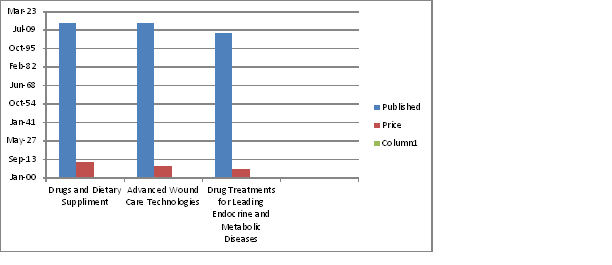
Digital Pathology: Technologies and Global Markets
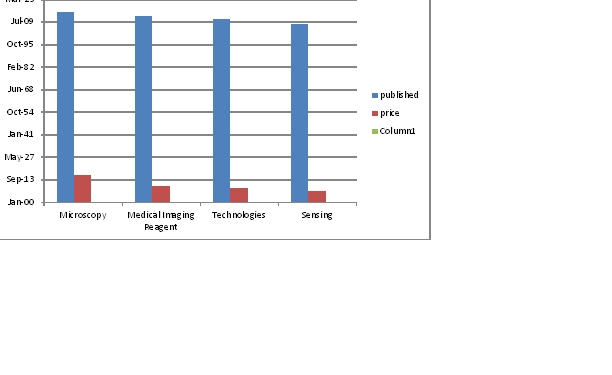
ConferenceSeries Ltd invites all the participants from all over the world to attend ‘2nd International Conference on Mycology & Mushrooms’ during September 25-26, 2017 in Chicago, USA, which includes prompt Keynote presentations, Oral talks, Poster presentations and Exhibitions.
In the line with 2nd International Conference on Mycology and Mushrooms, addressing the most recent advances across the spectrum of Mycology and Mushrooms research from basic sciences to public health. Conference highlights will include Fungal Diversity, Fungal Ecology, Fungal Biotechnology, Fungal Symbiosis (Lichens and Mycorrhizae), Pathogenic fungi and Fungal Infections, Bacterial-Fungal Interactions, Mycotoxins, Medical mycology, Industrial Mycology, Food Mycology, Mushrooms, Edible and Medicinal Mushrooms and Entrepreneur Investments Meet.
ConferenceSeries Ltd Organizes 300+ Conferences Every Year across USA, Europe & Asia with support from 1000 more scientific societies and Publishes 500+ Open access journals which contains over 50,000 eminent personalities, reputed scientists as editorial board members.
Highlighting 2 days of scientific workshops, special sessions, speaker & poster sessions, and Industrial Expo.250+ attendees from all over the world.
Conference Highlights
- Fungal Diversity
- Fungal Ecology
- Applied Mycology and Biotechnology
- Pathogenic Fungi and Fungal Diseases
- Fungal Interactions
- Mycotoxins
- Industrial Mycology
- Medical Mycology
- Applied Food Mycology
- Fungal Biofilms
- Mushrooms
- Mushrooms for Health Immune System and Cancer
- Entrepreneur Investments Meet
- Lichens and Mycorrhizae
- Antifungal Drugs
To share your views and research, please click here to register for the Conference.
To Collaborate Scientific Professionals around the World
| Conference Date | September 25-26, 2017 | ||
| Sponsors & Exhibitors |
|
||
| Speaker Opportunity Closed | |||
| Poster Opportunity Closed | Click Here to View | ||
Useful Links
Special Issues
All accepted abstracts will be published in respective Our International Journals.
Abstracts will be provided with Digital Object Identifier by















